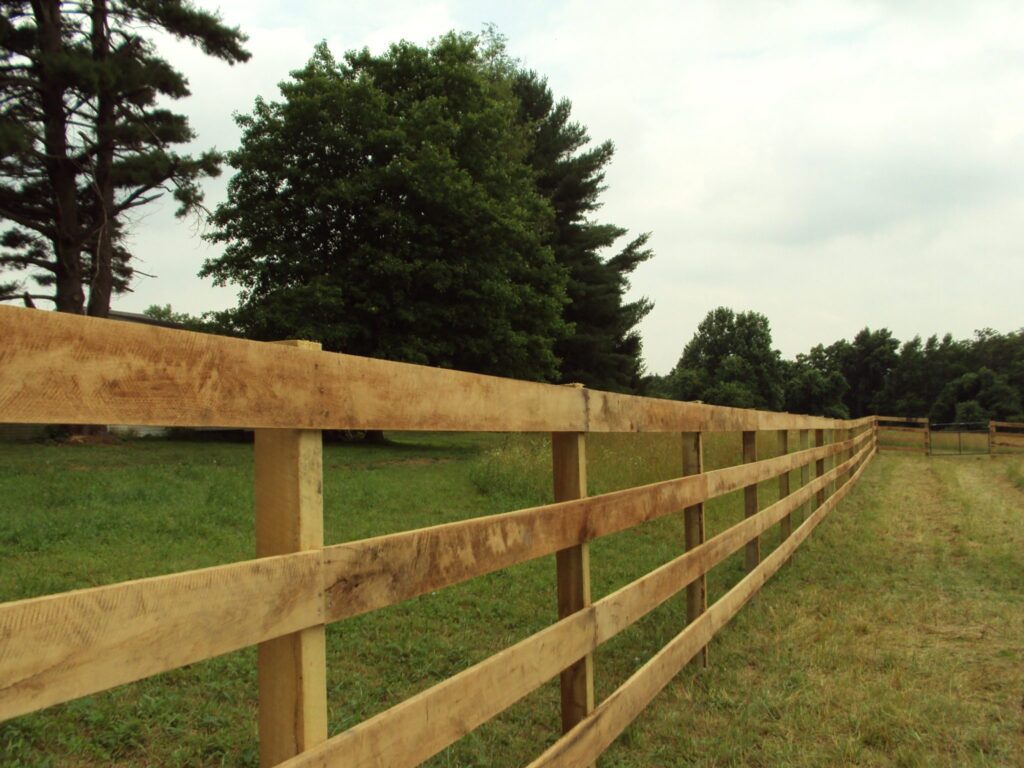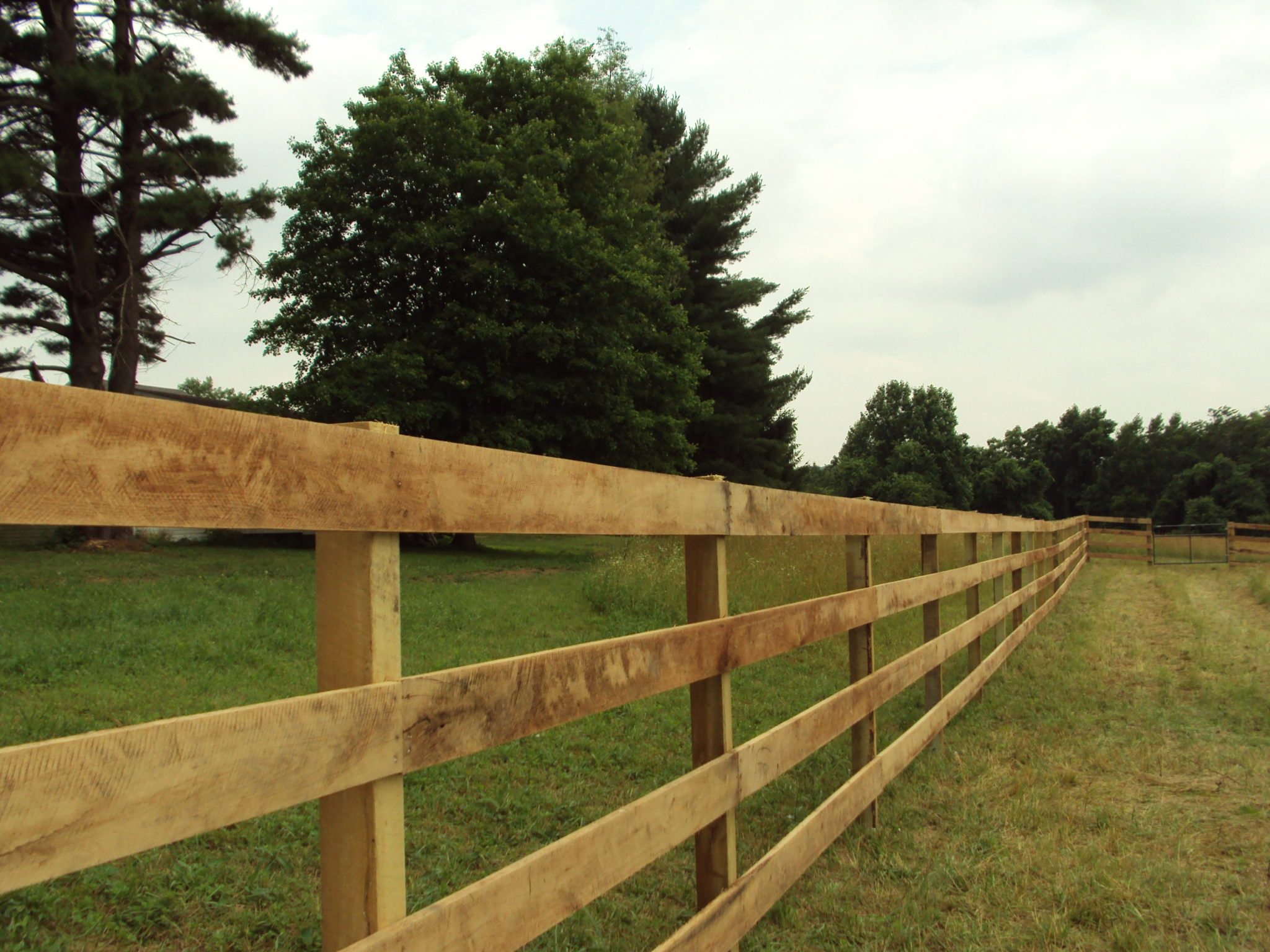
Choosing the Right Types of Wood for Farm Fencing: A Comprehensive Guide
Farm fencing is more than just a boundary; it’s an investment in the safety and security of your livestock, crops, and property. When selecting materials, wood remains a popular choice due to its natural aesthetic, versatility, and relative affordability. However, not all wood is created equal. Understanding the different types of wood for farm fencing is crucial for ensuring longevity, durability, and cost-effectiveness. This guide will explore the various options available, highlighting their strengths, weaknesses, and suitability for different fencing needs.
Understanding the Importance of Wood Selection
The type of wood you choose for your farm fencing directly impacts its lifespan and maintenance requirements. Factors such as resistance to rot, insects, and weathering play a significant role in determining how long your fence will last. Selecting the wrong wood can lead to premature decay, structural failure, and costly repairs or replacements. This guide helps you navigate the options and make informed decisions about types of wood for farm fencing.
Popular Types of Wood for Farm Fencing
Pressure-Treated Pine
Pressure-treated pine is one of the most common and affordable options for farm fencing. The treatment process involves impregnating the wood with chemicals that protect it from rot, decay, and insect infestation. This makes it a durable choice, especially in environments with high moisture levels.
Pros:
- Affordable and readily available
- Resistant to rot, decay, and insects
- Easy to work with (can be cut, drilled, and nailed)
Cons:
- Can warp or twist over time, especially in extreme weather conditions
- Requires regular staining or sealing to maintain its appearance and further protect it from the elements
- Chemical treatment can leach into the soil over time, which may be a concern for some farmers
Pressure-treated pine is a solid choice for general farm fencing needs, particularly where budget is a primary concern. However, it’s essential to consider the long-term maintenance requirements and potential environmental impact. When choosing pressure-treated pine, be sure to select the appropriate treatment level for ground contact applications. Thinking about the types of wood for farm fencing requires weighing pros and cons.
Cedar
Cedar is a naturally durable wood known for its resistance to rot, decay, and insects. It contains natural oils that act as preservatives, making it an excellent choice for farm fencing, especially in areas with high moisture or insect pressure.
Pros:
- Naturally resistant to rot, decay, and insects
- Attractive appearance with a reddish-brown hue
- Dimensionally stable (less prone to warping or twisting)
- Requires minimal maintenance
Cons:
- More expensive than pressure-treated pine
- Can be softer than other wood types, making it more susceptible to damage from livestock
Cedar is a premium option for farm fencing that offers excellent durability and aesthetic appeal. Its natural resistance to decay and insects makes it a low-maintenance choice that can last for many years. However, the higher cost may be a limiting factor for some farmers. Consider cedar when looking at the types of wood for farm fencing if you value longevity and natural beauty.
Black Locust
Black locust is a hardwood known for its exceptional strength and durability. It is naturally resistant to rot, decay, and insects, making it an excellent choice for farm fencing, particularly in areas where strength and longevity are critical.
Pros:
- Extremely durable and long-lasting
- Naturally resistant to rot, decay, and insects
- Strong and able to withstand significant impact
- Requires no chemical treatment
Cons:
- More expensive than other wood types
- Can be difficult to work with due to its hardness
- May be less readily available than other options
Black locust is a top-tier choice for farm fencing, offering unmatched durability and longevity. Its natural resistance to decay and insects makes it a sustainable and low-maintenance option. While the higher cost and difficulty in working with it may be drawbacks, the long-term benefits often outweigh these considerations. For heavy-duty fencing needs, black locust stands out among the types of wood for farm fencing.
Oak
Oak is another hardwood option known for its strength and durability. While not as naturally resistant to rot and decay as cedar or black locust, oak can still provide a long-lasting fencing solution with proper treatment and maintenance.
Pros:
- Strong and durable
- Relatively affordable compared to cedar and black locust
- Available in a variety of species with different characteristics
Cons:
- Susceptible to rot and decay if not properly treated
- Can be prone to splitting or cracking
- Requires regular maintenance to prevent decay and insect infestation
Oak can be a viable option for farm fencing, particularly if treated with preservatives and properly maintained. Its strength and affordability make it a good compromise between cost and durability. However, it’s essential to be diligent about maintenance to ensure its longevity. When considering the types of wood for farm fencing, oak offers a balance of strength and cost, but requires vigilance.
Osage Orange (Hedge)
Osage orange, also known as hedge, is a very durable and rot-resistant wood traditionally used for fencing. It is known for its thorny branches when grown as a hedge, but the wood itself is extremely strong and long-lasting when used for posts.
Pros:
- Extremely durable and rot-resistant
- Very strong
- Historically used for fencing and known for longevity
Cons:
- Difficult to work with due to its hardness
- Can be hard to find and expensive
- The thorny nature of the tree can make it challenging to handle
Osage orange is an excellent choice where extreme durability is needed and the budget allows. It is one of the most naturally durable woods available, making it a great option for long-lasting fence posts. Considering the types of wood for farm fencing, osage orange is a top contender for durability.
Factors to Consider When Choosing Wood for Farm Fencing
In addition to the type of wood, several other factors should be considered when selecting materials for your farm fencing:
- Budget: The cost of different wood types can vary significantly.
- Climate: Consider the local climate and its impact on wood durability.
- Livestock: The type and size of livestock will influence the strength and height requirements of the fence.
- Maintenance: Consider the amount of time and effort you are willing to invest in maintaining the fence.
- Aesthetics: Choose a wood type that complements the overall appearance of your farm.
Maintenance Tips for Wood Farm Fencing
Proper maintenance is essential for extending the lifespan of your wood farm fencing, regardless of the type of wood you choose. Here are some tips:
- Regular Inspections: Inspect your fence regularly for signs of damage, rot, or insect infestation.
- Cleaning: Clean the fence regularly to remove dirt, debris, and algae.
- Staining or Sealing: Apply a stain or sealant every few years to protect the wood from the elements.
- Repairing Damage: Repair any damage promptly to prevent further deterioration.
- Vegetation Control: Keep vegetation away from the fence to prevent moisture buildup and insect infestation.
Conclusion
Choosing the right types of wood for farm fencing is a critical decision that can impact the longevity, durability, and cost-effectiveness of your fencing project. By understanding the strengths and weaknesses of different wood types, you can make an informed choice that meets your specific needs and budget. Whether you opt for affordable pressure-treated pine, naturally durable cedar, or incredibly strong black locust, proper installation and maintenance are essential for ensuring the long-term performance of your farm fencing. Remember to consider your budget, climate, livestock, and maintenance capabilities when making your decision. Selecting the right wood is paramount for protecting your investment and ensuring the safety and security of your farm. The best types of wood for farm fencing depend on your unique needs and circumstances. Always research and consult with fencing professionals to make the most informed decision. Making the right choice regarding the types of wood for farm fencing will pay dividends in the long run. Knowing the various types of wood for farm fencing empowers informed decisions. The different types of wood for farm fencing each bring unique qualities. Consider all types of wood for farm fencing before making a final selection. Understanding the types of wood for farm fencing is key to a successful project. Different types of wood for farm fencing are suited for different purposes. Properly evaluating the types of wood for farm fencing is essential. Choosing between the available types of wood for farm fencing can be challenging. The variety of types of wood for farm fencing offers many options. When considering types of wood for farm fencing, think about the long term.
[See also: Farm Fencing Installation Guide]
[See also: Cost-Effective Fencing Solutions]
[See also: Maintaining Your Wood Fence]

